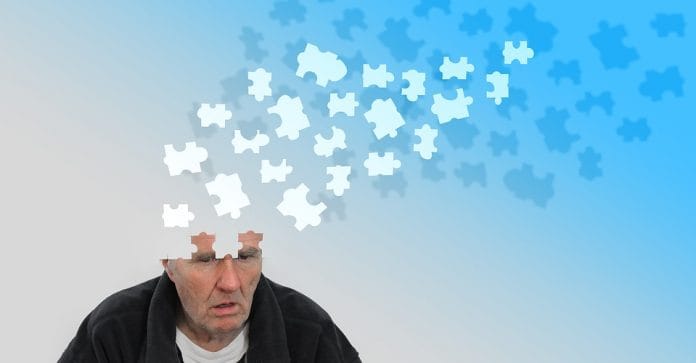There’s no approved product that can slow or stop the ailment, and about 200 drugs have failed.
A promising drug trial excites doctors and investors. The company’s stock soars. Then more data pours in, confusion grows, the shares crash and the questions start — will this Alzheimer’s drug fail like all the others?
That’s been the history of treatments for the neurodegenerative disease, which affects about 35 million people around the world. There’s no approved product that can slow or stop the ailment, and about 200 drugs have failed despite years and billions of dollars of effort.
A new clinical trial of a drug, called BAN2401, under development from Biogen Inc. and Eisai Co. seemed like it might reverse that trend, after the companies said earlier this month that their study of the compound showed it slowed progression of the disease.
Instead, investors who follow the companies and doctors looking for a useful treatment have been left with more questions than answers, even after trial results released Wednesday showed that the drug slowed the progression of the earliest stages of the disease by 30 percent. The findings added a glimmer of hope but left plenty of reasons for doubt.
A New Approach
The BAN2401 trial was unusual from the start.
Most drug studies assign fixed numbers of patients to each part of the trial. Some get a placebo. Others get a low dose of the drug, and the rest a higher dose. It’s a system to identify whether a drug is better than a sham treatment, and if so, what dose is best?
Eisai and Biogen did something different, hoping to save money and time. The trial added patients into whatever dose looked most promising as the trial proceeded. It was an idea meant to help them quickly find a dosage for a larger, final-stage trial without needing to enroll as many participants.
Researchers also used a novel measure of how fast patient’s Alzheimer’s was progressing. The new method was designed to pick up the earliest hints of cognitive decline, a more sensitive tool than the blunter measurements used in past trials.
Even with the new methods, the trial failed to meet its primary goal. In December, after calculating 12 months of patient results, the drug hadn’t clearly slowed cognitive decline. While many studies would have stopped then, the trial was designed to continue so the company could reanalyze the data under a different method with six months’ more data.
When they did, the trial appeared to have turned from failure into success.
A day before the results for BAN2401 were unveiled to doctors and researchers gathered at a convention center in Chicago, an executive from Eisai promised certainty, something that failed trials from a host of other drugmakers hadn’t been able to offer.
“It will be clear,” said Lynn Kramer, Eisai’s chief medical officer for neurology. “You won’t have any ambiguity.”
That wasn’t the case.
One stock analyst, Robert W. Baird & Co.’s Brian Skorney, said there were “almost no reasonable conclusions to draw.” Another, Laura Chico of Raymond James Financial, called the results “head spinning.” Biogen and Eisai shares plunged, cutting a large share of the gains they made between when they first said they had a successful trial in early July, and when the details were revealed Wednesday.
Read more: Alzheimer’s study lacks ‘shock and awe’ Biogen investors sought
The highest dose showed statistically significant results in slowing Alzheimer’s decline, compared with patients who received a placebo. Treatment also lowered levels of amyloid in the brain, a hallmark of the disease, showing the drug was hitting its target. But patients getting lower doses didn’t have any cognitive benefit.
Mid-Trial Change
Muddying matters even further, midway through the trial, regulators — fearing side effects — ordered Eisai and Biogen to make a change. Patients with a gene mutation that’s associated with Alzheimer’s disease were kept out of the high-dose group.
That created a complication. In some earlier studies, the gene is associated with Alzheimer’s getting worse faster. So was the group on the high dose of BAN2401 doing better because the drug was working? Or because it had fewer patients with a genetic mutation that speeds up the disease?
Murali Doraiswamy, director of the neuro-cognitive disorders program at Duke University School of Medicine, was in the room watching the presentation.
“What to me looked like a very clean, positive trial with what looked like statistically significant effects on both cognition and amyloid — all of a sudden that picture was ruined,” said Doraiswamy. “That raised all kinds of questions.”
Past Failures
Other companies have pushed ahead with similar results, to disappointing ends. Eli Lilly & Co., Pfizer Inc. and Johnson & Johnson all went forward with trials after promising data, only to see their drugs fail in the much larger tests required for approval.
“We now view everything through the lens of what has happened before,” said Tamara Blutstein, an analyst at Decision Resources Group. “Everyone would like to see this go into a phase 3 trial. That’s where the road gets really rocky for these drugs.”
Eisai and Biogen are bullish with their expectations, looking for ways to speed the last stages of studies and get accelerated reviews from global agencies. Doctors say longer, larger trials are needed to definitively answer whether the drug works.
Even in the best-case scenario — that the 30 percent results aren’t an anomaly — the drug would hardly be a cure. Patients who received the high-doses of BAN2401 still declined surely and steadily, just not as fast as those who got placebo.
“The magnitude of the effects are pretty underwhelming,” said Lon Schneider, director of the California Alzheimer’s Disease Center at the University of Southern California, who was not involved in the trial. “Is this clinically significant? I am not convinced.” – Bloomberg






